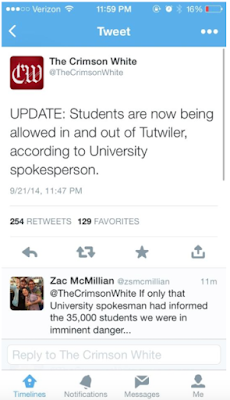Do Likes Equal Votes? How Social Media Can Win Your Campaign
With the 2014 Midterm Elections finally behind us, political analysts are diving into each party to see what worked and what didn’t. For many elected, social media played an important role in the outcome of their campaign. Today, politicians are seeing the benefit of social media more and more, especially to reach the younger voters. Gone are the days where campaigns come out with a few radio or TV commercials filled with criticism of their opponent. Now, its about engaging with the voter base and simply pushing everyone to get out and vote.
Big politicians like Hillary Clinton, George H.W. Bush, and Bill Clinton utilize Twitter to voice opinions, express condolences and reach out to the entire nation in an effective way. As young voters express more progressive political ideas, its vital to adapt to that ideology and have a presence on platforms where you can easily find them spending hours a day on. Social media is a great place to find a large part of your voter base, connect with them and allow them to connect amongst themselves to create a community of supporters.
Having a strong social media presence can be a major contributor to the traffic leading back to the main campaign website, where voters can read the candidate’s stances on certain issues. According to New Media Campaigns, “While the first rule is to not overextend yourself into too many networks, that doesn’t excuse any candidate from not having a presence on at least a few of the top networks. We believe it’s absolutely necessary to have presences on at least: Facebook, Twitter, YouTube, and Flickr”.
Having a strong social media presence gives the candidates and current politicians a sense of authenticity and makes lawmakers seem less distant and unavailable, and having a good etiquette with voters is paramount.
Here are a few of the main reasons why social media can solidify any campaign:
- Create a community fast: Politicians can use social media to get a quick idea of voter demographics, what matters to the people and how many people would likely vote for you if the election were today. Creating a community of supporters can lead to campaign contributions, a strong support system and ultimately, more votes in your favor.
- Make you more accessible to your constituents: Political campaigns can get ugly and if you only rely on the damaging ads going back and forth, people won’t get to see the real side of you. Social media gives you the chance to rectify bad publicity and solidify your commitment to your constituents. People are talking about you regardless of whether or not you see or hear it so you might as well be invested in your image. Give yourself a humanistic appeal and show that even though you will hopefully be holding a position of power, you won’t forget the people who voted you there.
- Learn about who you wish to represent: monitoring social media platforms can give politicians a glimpse into what voters feel about certain key topics as well as topics that are of most interest to them. Although it’s impossible to create meaningful discussion in just 140 characters, politicians can get a glimpse into the voter’s thoughts. By giving people a place where they can voice their opinions, you gain instant access into their thoughts and furthermore, who they are sharing those thoughts with. In order to cater your strategy to them, its vital to see how your constituents speak about certain key issues and use the platforms to spread your message to show people you are invested in their interests and care about their concerns.
- Encourage people to vote: regardless of their candidate of choice, it is always important to have the maximum voter turnout possible. Although that at times is not really achieved, social media can encourage the young adults (who are the least likely to vote) to go do so. For the most recent election, Google teamed up with The Voting Information Project to develop tools that make it easier for people to find out how to vote.
Overall, social media of itself may not win campaigns, but having a strong presence can make an enormous difference in your campaign effectiveness and public perception. Of course, with this tool comes great responsibility and many politicians have learned that the hard way.
http://www.newmediacampaigns.com/page/using-social-media-in-political-campaigns

Comments
Post a Comment